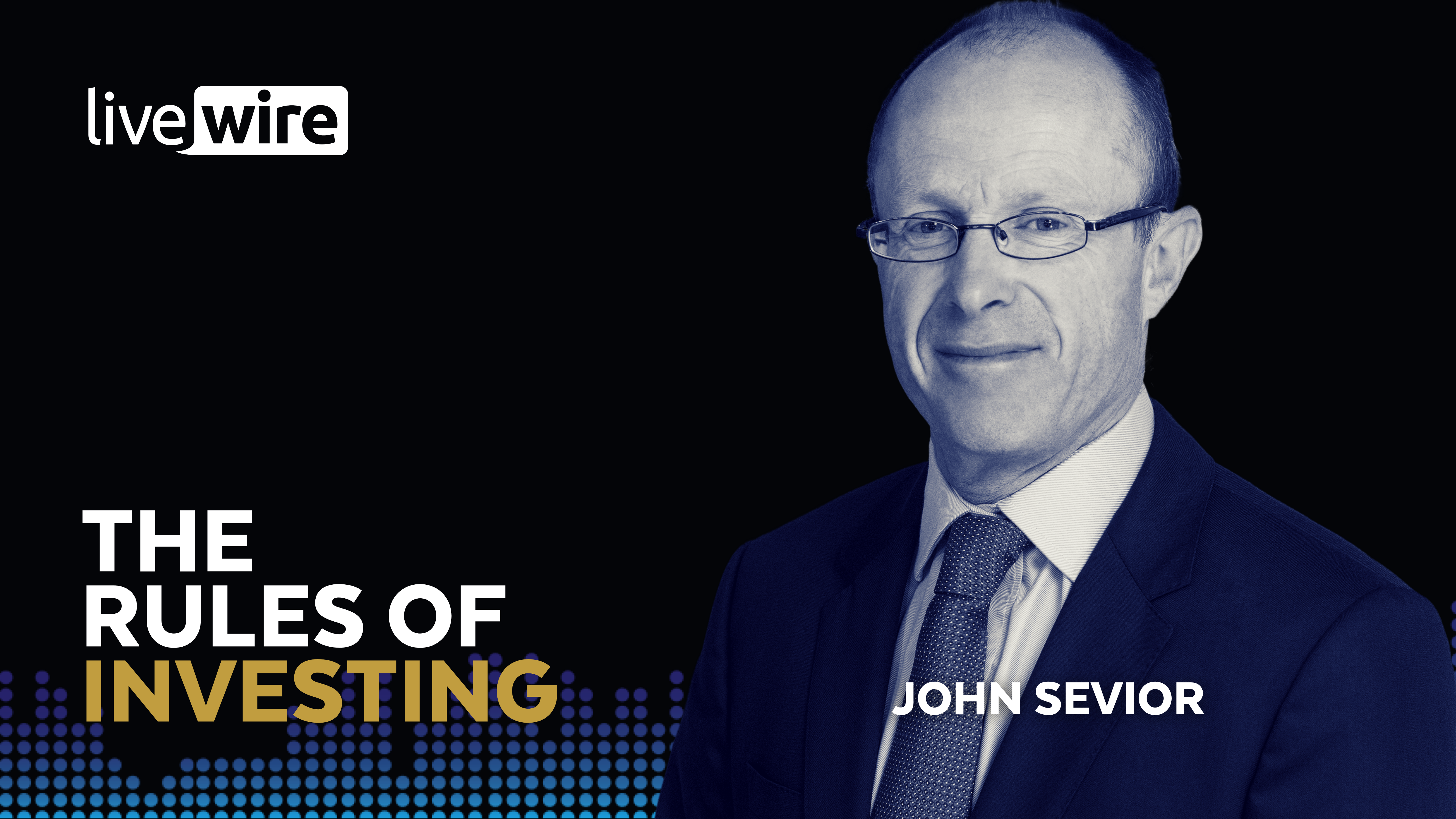John Sevior on the key principles for long-term gains
Let's face it, putting up with anyone for a decade is an achievement. But to make a partnership truly sing after 30 years is not only worth celebrating, it's worth investigating too.
Exhibit A is the latest episode of Rules of Investing, in which host Patrick Poke was joined by Founder & Portfolio Manager at Airlie Funds Management John Sevior.
In the podcast, Sevior opened up on his enduring partnership with co-founder Matt Williams, as well as speaking about his influential years at Perpetual, the founding of Airlie, and the recent reporting season. He also gave his thoughts on three stocks showing strong quality.
Sevior and Williams started their partnership at Perpetual three decades ago, before founding Airlie Funds Management in 2012. When they did so it was on the basis of what they knew best: strong fundamentals and concentration.
"Perpetual had some very basic principles of investing - none of which are rocket science, but they're very similar to the principles we adopted at Airlie," Sevior told Patrick. "They're guidelines that stop you making mistakes. And within that framework, they gave people a lot of freedom to express themselves within those principles."
This emphasis on simplicity and conviction allowed them to flourish despite continued complexity arising in markets.
In the wire below I'll take you through this and all the key takeaways from what was a fascinating and illuminating conversation.

Early influences
The investing bug is one often caught in nascent years and influenced by parental figures. Sevior's mother was a keen investor and horse punter (there is a difference) and he inherited both focus and a portfolio of 7 stocks from her.
After studying economics and a stint in stockbroking, Sevior joined Perpetual and worked alongside a number of industry heavyweights including Peter Morgan, Anton Tagliaferro and, notably, Matt Williams. This served as a brilliant training ground and drove many of John's fundamental investment principles.
They took big positions in companies outside the market leaders. They weren't what you'd call activists in the modern-day sense, but they understood the concept of industry rationalisation so they enjoyed a rich period of takeover activity across their portfolios over a long period of time.
The Airlie approach
John and Matt went their own way to found boutique manager Airlie Funds Management. Their time together at Perpetual instilled the importance of developing a central framework, using it to inform your investment strategy and minimise mistakes.
Their approach at Airlie - which has also been previously explored with Portfolio Manager Emma Fisher - revolves around "trying to balance the quality of the company against the price we pay for it."
.jpg)
This strategy can be characterised by 4 main components:
- The balance sheet
- The quality of the company
- The quality of management; and
- The valuation
With experience, the process has gradually become more systematic and developed.
At Perpetual it used to be characterised as a mixture between art and science, and I think that's a very good characterization about how we think about it.
I know when I started as an investor, I was about 95% art and 5% science, and gradually I've educated myself over the years.
Honing in on assessing the quality of management teams, understanding what is achievable and what is wishful thinking has been refined with experience and evolving companies.
"Matt and I have met many versions of management teams over the nearly 30 years we've been working together. If you think about the fact that the average tenure of a CEO in Australia is about four or five years...that works out to about five generations of management in some companies. So we've listened to a lot of stories and we get a sense of what's plausible, what's achievable, and what's not."
Sailing over to Magellan
3 years ago, Airlie joined Magellan after an increasing amount of time was spent on non-investment-related tasks such as distribution and compliance. Letting a larger business handle these elements meant the team could devote their focus to what they love most: investing. It also enabled the fund to approach the retail market and grow its reach.
Reporting season wrap
Overall, the 2021 August reporting season presented no major shocks. There were certainly highlights with some recovery being realised in results, but nothing stuck out to Sevior as being overly surprising. Paying close attention to how companies fare through continued COVID-19 uncertainty is paramount.
"There's probably a little bit of inflation emerging in lots of businesses as supply chains are being disrupted globally. The general cost of business is increasing, but being offset in terms demand, particularly in consumer-facing businesses"
"A lot of companies have resisted giving guidance because of the uncertainties. And how elevated that brought forward consumption is going to remain or is it going to sort of drift back to the general trend line of growth?"
Another notable point was the return of dividends. Reduced CAPEX expenditure meant payout ratios rose as cash was cascaded onto shareholders.
"It's been an absolute windfall period for investors in terms of cash dividends... Lower CAPEX, increased payout ratios, very good balance sheets, but probably no greater certainty in terms of outlook than six months ago."
When cash is paid out to shareholders, it comes at a direct tradeoff to the company investing in new opportunities. With already constrained balance sheets, will under-investment could long term implications, particularly if inventory is mismanaged.
"I think a little bit. Consumer-facing businesses or some wholesaling businesses such as Super Retail (ASX:SRL) have increased their inventories, (as have) Bapcor (ASX:BAP)... On the balance of probabilities, companies will need more inventory than they currently have. And with supply chain disruptions as they are, it's probably the prudent thing to rebuild inventories.
JB Hi-Fi: A business with a quality culture
JB Hi-Fi has really been one of the great success stories in Australian retailing over the last decade. As far as perceptions go though, it is not immediately forthcoming to gauge where the future path for growth is. They have a well-developed network of stores domestically, however expanding overseas is often challenging for retailers, particularly in a very competitive electronics space.
So where does the growth come from here?
"The main source of growth has been store rollout and product innovation. They control the store rollout but not product growth... If you look at the factors that have contributed to their success, it's got a terrific sort of can-do culture. During the peak of the pandemic, they took the initiative of hiring 75 vans to do their own deliveries, because that was the quickest way they were going to keep the machine rolling ... The conversations with management are very honest."
On the cost side, they rival the best in the world.
Their cost of business is right up there with Best Buy, which is a sort of global leading retailer in the space, even though they're a much bigger business.
Overall by combining store rollout, an improving online experience, exceptional culture, doing the small things right and learning from mistakes quickly, JB Hi-Fi has compounded into a "powerful" company.
At a 10.26 PE, Sevior believes it appears around fair value in what is a relatively expensive market by historical standards.
From one retailer to another - Premier Investments
Premier Investments (ASX:PMV) is a diverse retailer with several household brands under their umbrella: Smiggle, Peter Alexander and Just Jeans.
In the past, we saw Specialty Fashion Group in a similar situation. They had City Chic (ASX:CCX) as a star brand and a suite of other smaller ones. They spun those off, separated the brands and it's been very successful for City Chic. Sevior doesn't see an obvious link between all of their portfolio brands, but equally splitting is not a current focus.
"It's nothing I've ever really talked about with the company and they've never raised it. I don't think there's a lot of cross subsidisation within the brands: they've got independent teams and they're talked about as different businesses, (plus) they're in different phases of development. It could make sense, but there are higher priorities within the group.
There's a new CEO-elect in Richard Murray, they'll look at the business with a clean sheet of paper and that may be a talking point."
Pivoting to another major holding in the portfolio, Myer (ASX:MYR) has been under the microscope lately. PMV has increased their holdings and Chairman Solomon Lew has recently demanded the resignation of Myer directors.
A challenging business with great history and assets, its high degree of operating leverage places it in a position to succeed under the right management, as we have seen with JB Hi-Fi and Nick Scali (ASX:NCK).
Conclusion
Demonstrating humility and trusting in fundamental pillars stand out through Sevior's investing journey.
This has allowed him to refine his approach to markets and maintain a strong relationship with his partner at Airlie for nearly 30 years.
A formative lesson while he was at Perpetual involved a takeover offer for APN News and Media. Coming off the back of a successful negotiation with former holding Rinker, the team was full of confidence and tried to push for an additional 10-20 cents on what was a $6 share price. The bidding consortium walked away and the GFC hit, shattering APN News and Media's share price by over 70%.
"Sometimes you've got to relive those bad experiences to realise there's a terrific lesson in that and that's not to get too greedy."
In true Airlie fashion, their commitment to principles around durability and quality remain true in Sevior's long-term pick.
Wesfarmers ticks all these boxes, as an owner of many of Australia's most loved brands and with one of the best management teams on the ASX.
It's pretty impressive the value they've managed to extract from the various businesses over the years. Not many do the conglomerate structure well.
Invest where fair value exceeds market price
Airlie Funds Management identifies Australian companies based on their financial strength, attractive durable business characteristics and the quality of their management teams. Visit their website for more information.
2 topics
7 stocks mentioned
6 contributors mentioned


